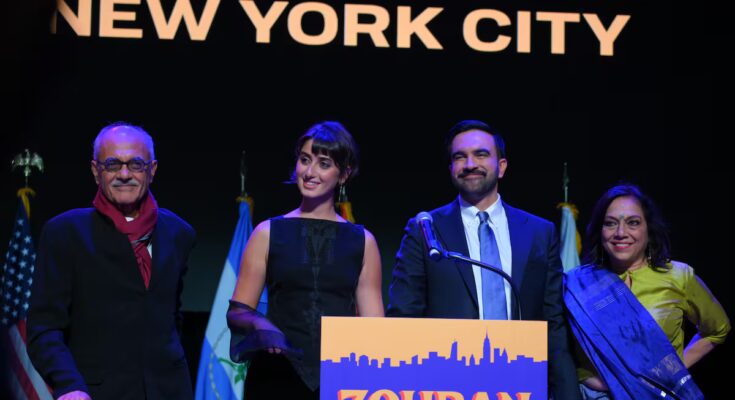Zohran Mamdani, a 34-year-old graduate in African Studies, born in Kampala, the capital of Uganda, will be the next mayor of New York City. He will do so after obtaining more than 50% of the votes, a remarkable feat. And the list of historic firsts he represents for the mayor of New York is long: he will be the first Muslim, the first socialist and the youngest person to hold the office in more than a century. Yet despite these firsts, Mamdani also embodies a certain continuity with a less discussed feature of the Democratic Party in recent years: like Barack Obama, Kamala Harris and Pete Buttigieg, Mamdani is the son of socialist immigrants.
These parents’ socialism was forged during the revolutionary decades of the 1960s and 1970s. In the 1960s, Obama’s father held a senior position in Kenya’s Ministry of Economy, acting as a self-critical socialist within the economic project led by independent Kenya’s charismatic hero, Tom Mboya. Around the same time, amid the civil rights movement in the United States, Harris’ parents met at an Afro-American Association rally. Both earned doctorates: her mother in endocrinology – channeling her political fervor into advancing breast cancer research – and her father in economics, studying the extent to which the anticolonial politics of his native Jamaica could be applied to his adopted country, the United States.
As for Buttigieg’s father, he became the main philologist of Antonio Gramsci’s work. Even in 2018, when I met him for the first and last time, his constellation of references for understanding contemporary politics was still rooted in Pier Paolo Pasolini’s Italy, in autonomism and in the Fiat factory protests.
Mamdani’s parents share a similar political trajectory. His father, a Ugandan like him, came to the United States in 1963 on a scholarship for East African students. As a student he took part in the North-South trips organized by the Student Nonviolent Coordination Committee. He later channeled that activism into an academic career focused on analyzing colonialism, postcolonialism, and minority groups in Africa.
His mother, born in India, developed her political awareness in the street theater of Delhi. After coming to the United States as a student, she also became a filmmaker, directing films that subtly challenged Hollywood prejudices: scripts shot in foreign working-class neighborhoods, romantic comedies set in historical political contexts, and casts without white actors.
Unlike other Democrats with socialist parents, Mamdani has not sought to distance himself from his parents’ legacy. Every move he makes on the political chessboard hints at family politics. His activism against the siege of Gaza – the importance of which to his political career has been compared to the role that opposition to the Iraq war played in Obama’s – is directly linked to his father’s anti-colonial criticisms. His proposals for free childcare, rent freezes and council-owned supermarkets echo the many internal tensions over money appearing in Salaam Bombay!, Mississippi Masala, Monsoon weddingand other films by his mother.
To his detractors, this might seem like the plot of a Houellebecq novel: a charismatic young Muslim politician, a Trojan horse deceiving well-meaning voters, a society slipping unwittingly into decline. But in reality, what it signals is an attempt to build a new coalition that brings together young people, immigrants, workers, debtors, Muslims, students, tenants and parents – a rainbow coalition that leaves no one behind. Except billionaires.
Sign up to our weekly newsletter to get more English-language news coverage from EL PAÍS USA Edition



